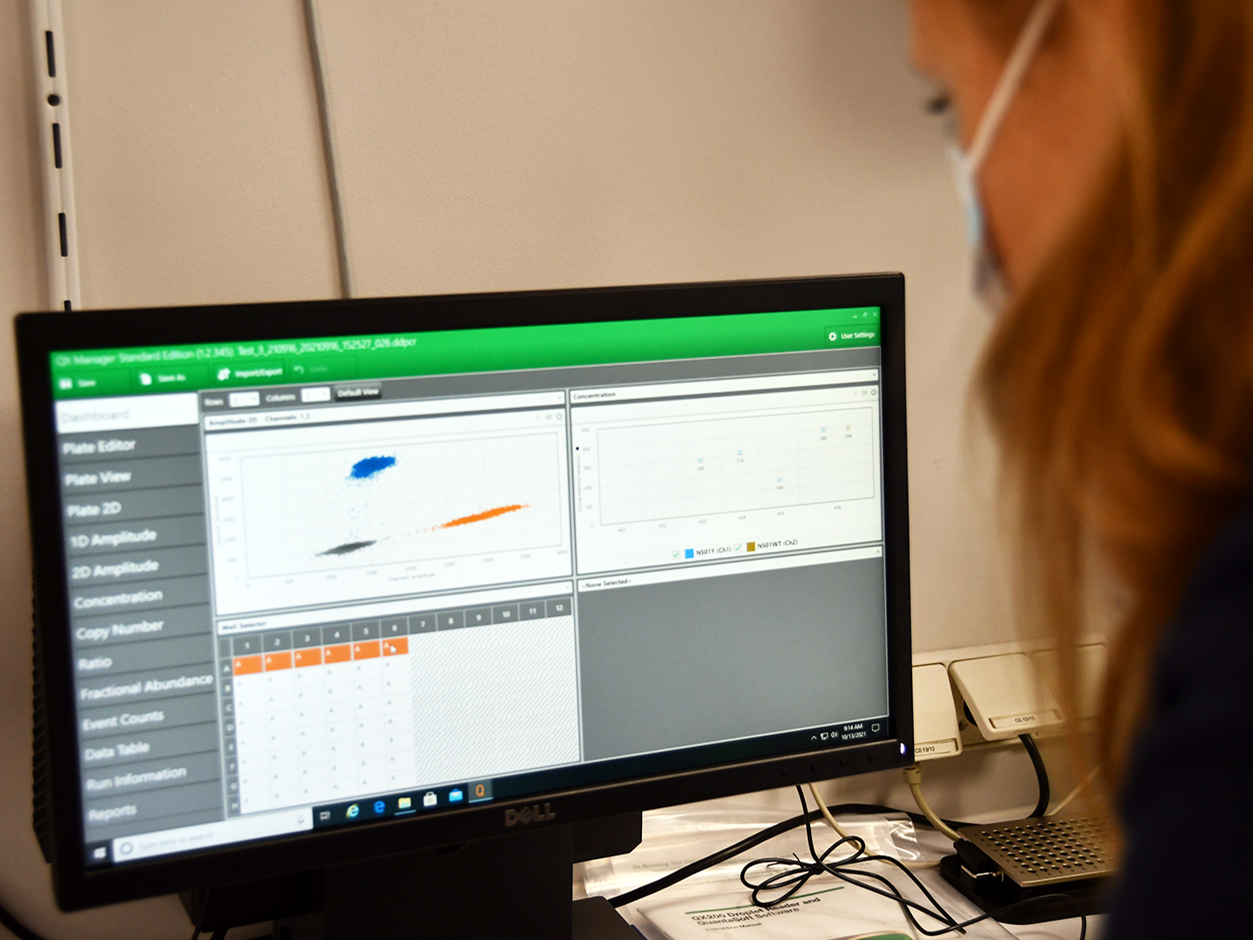LIST searches for SARS-CoV-2 variants in wastewater
Published on 11/10/2021
The circulation of the Covid-19 virus continues to be present with the appearance of new variants the scientific community is trying to characterise. Alpha, Beta, Gamma... all of them are distinguished by specific mutations in their genome, and more particularly in their spike gene. Some of these modifications in the identity card of the virus can be favourable to variants to slip through the net of the vaccine. A precise monitoring of their circulation throughout the Grand Duchy is therefore necessary to ensure proper pandemic management.
Faced with this situation, LIST microbiologists, in collaboration with the LCSB from the University of Luxembourg and the LNS, decided to track down several variants of concern. Also requested by the Luxembourg Ministry of Health, this monitoring has just started through the CORONAVAR research project, financed in part by FNR in the framework of its Covid-19 Fast-Track call. Leslie Ogorzaly, researcher at LIST and in charge of the project, reveals it.
Which variants will be monitored in this project?
There are many variants of SARS-CoV-2. Some of them are classified as "of concern" or "to watch" by reference organisations such as the World Health Organization or the European Centre for Disease Prevention and Control. The CORONAVAR project will focus on about ten of these variants, mainly those considered to be of concern and therefore potentially vaccine resistant. As an example, we have already carried out preliminary analyses which clearly indicate that the Delta variant is now predominant in Luxembourg. As we have kept all our samples since the beginning of the pandemic, it will also be possible to go back in time to trace the history of the appearance of the different variants in Luxembourg.
And how do we identify these variants in wastewater?
We look at the presence or absence of several specific mutations on the spike gene and can therefore cross-check which variants are present in wastewater and in what concentration. In contrast, for global monitoring of SARS-CoV-2, we look for the presence of another gene that is affected very slightly by mutations and therefore common to all variants.
Within the framework of this project, we also want to test and select the most suitable method for carrying out these analyses on a daily basis. The results are intended to complement our current reports on the global concentration of the Covid-19 virus. High-throughput sequencing is a method that we use, but it is not applicable to obtain results in “real time”. We therefore chose to use digital RT-PCR. This is a similar technique to conventional RT-PCR except that it distributes the genetic material present in wastewater sample into thousands of reaction droplets. This makes it possible to conduct a multiplexed analysis - to detect several mutations at the same time - while guaranteeing greater reliability in terms of quantification.
Why is this monitoring of particular interest in addition to the clinical data?
We wish to take advantage of the benefits of monitoring the epidemic through wastewater. As for global monitoring of SARS-CoV-2, the "mass effect" generated by monitoring at a population scale should allow us to highlight the appearance of new variants, or rather new mutations, before detection in patients. As an example, the preliminary results obtained during the period of the appearance of the alpha variant on our territory shows a significant increase in the number of mutations characteristic of the alpha variant from the end of November - beginning of December 2020, before the first clinical isolate attributed to this variant in Luxembourg on 24 December 2020.







